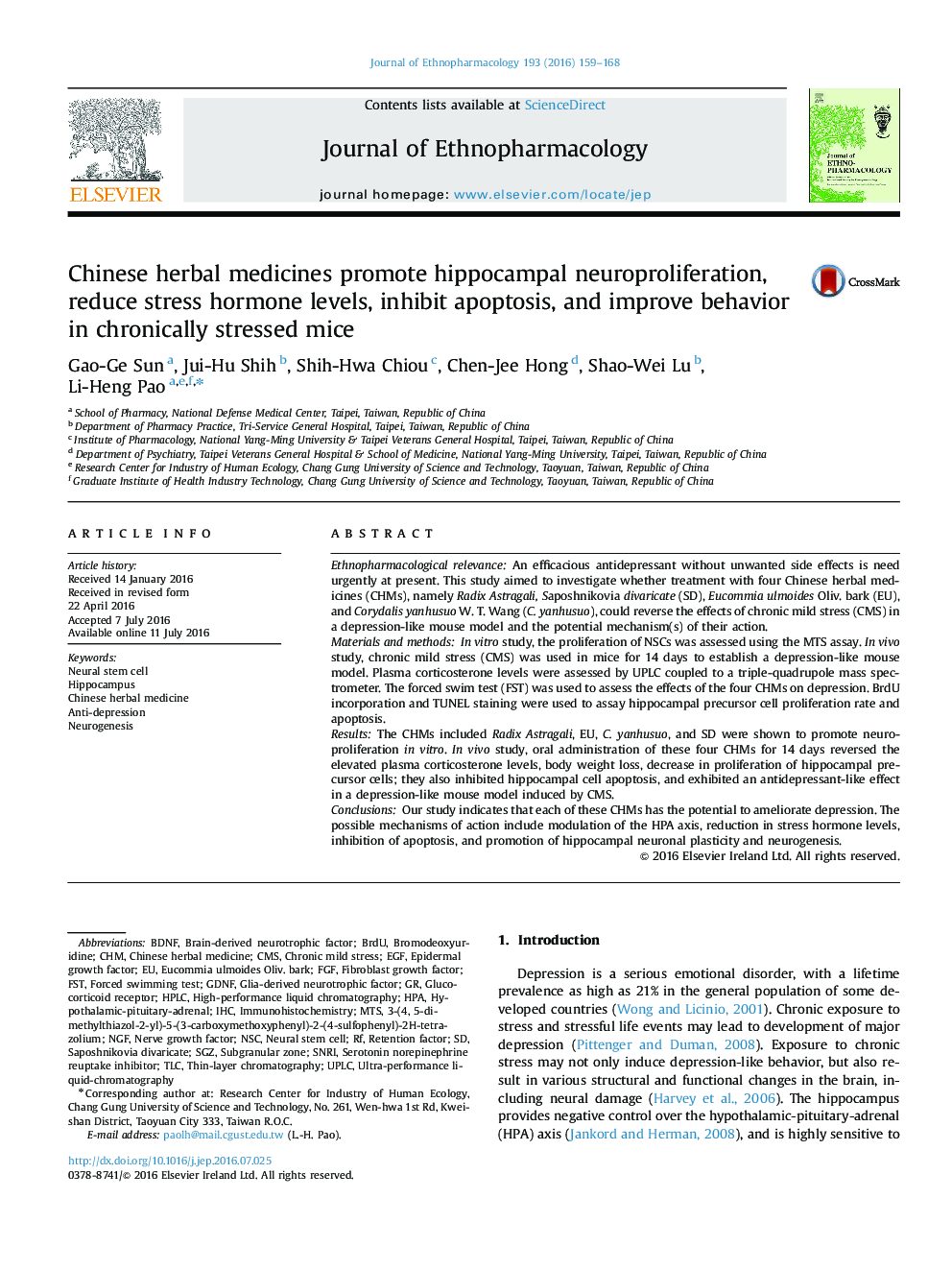| Article ID | Journal | Published Year | Pages | File Type |
|---|---|---|---|---|
| 2544623 | Journal of Ethnopharmacology | 2016 | 10 Pages |
Ethnopharmacological relevanceAn efficacious antidepressant without unwanted side effects is need urgently at present. This study aimed to investigate whether treatment with four Chinese herbal medicines (CHMs), namely Radix Astragali, Saposhnikovia divaricate (SD), Eucommia ulmoides Oliv. bark (EU), and Corydalis yanhusuo W. T. Wang (C. yanhusuo), could reverse the effects of chronic mild stress (CMS) in a depression-like mouse model and the potential mechanism(s) of their action.Materials and methodsIn vitro study, the proliferation of NSCs was assessed using the MTS assay. In vivo study, chronic mild stress (CMS) was used in mice for 14 days to establish a depression-like mouse model. Plasma corticosterone levels were assessed by UPLC coupled to a triple-quadrupole mass spectrometer. The forced swim test (FST) was used to assess the effects of the four CHMs on depression. BrdU incorporation and TUNEL staining were used to assay hippocampal precursor cell proliferation rate and apoptosis.ResultsThe CHMs included Radix Astragali, EU, C. yanhusuo, and SD were shown to promote neuroproliferation in vitro. In vivo study, oral administration of these four CHMs for 14 days reversed the elevated plasma corticosterone levels, body weight loss, decrease in proliferation of hippocampal precursor cells; they also inhibited hippocampal cell apoptosis, and exhibited an antidepressant-like effect in a depression-like mouse model induced by CMS.ConclusionsOur study indicates that each of these CHMs has the potential to ameliorate depression. The possible mechanisms of action include modulation of the HPA axis, reduction in stress hormone levels, inhibition of apoptosis, and promotion of hippocampal neuronal plasticity and neurogenesis.
Graphical abstractFigure optionsDownload full-size imageDownload high-quality image (122 K)Download as PowerPoint slide
